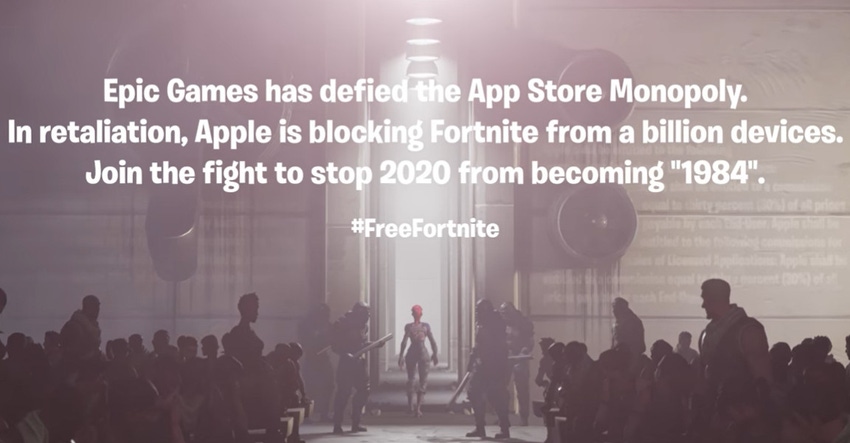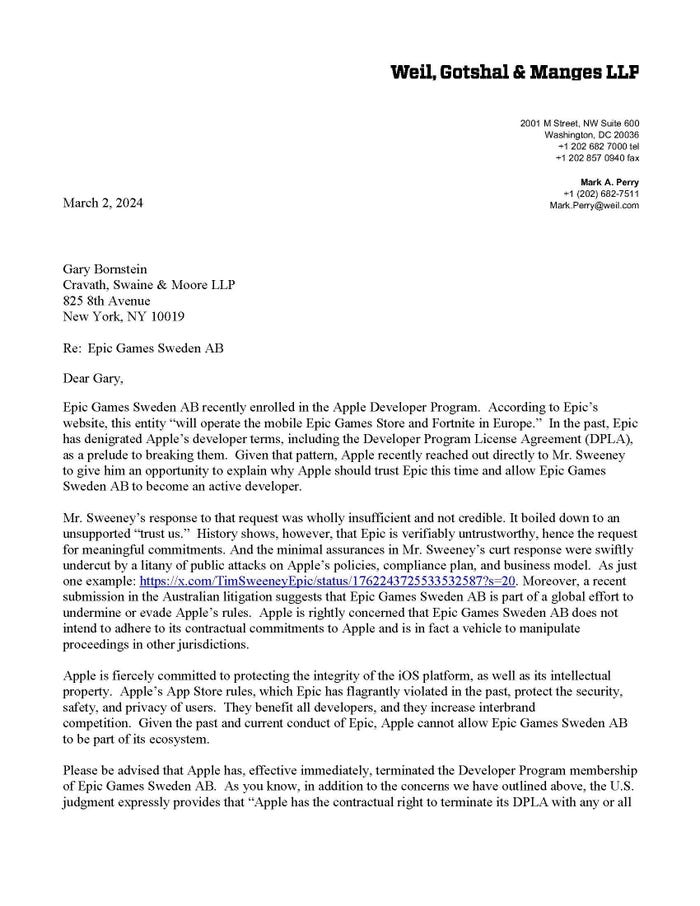Apple forced by EU into humiliating U-turn
US gadget giant Apple’s attempt to defy the European Commission ended abruptly, leaving it humiliated, humbled, and vulnerable.
March 11, 2024

The EU’s Digital Markets Act, designed to regulate the activities of US Big Tech, came into effect last week. One of its aims was to force the owners of de facto digital platform monopolies to open them up to competition. Accordingly Apple was ordered to allow app stores other than its own on iOS – it’s mobile device platform.
Probably the most high profile manifestation of this was games developer Epic being granted a developer account that would enable it to set up its own iOS store. However, on the eve of the DMA becoming actionable, Apple terminated that account on spurious grounds. Epic complained and the EC vowed to look into the matter.
The very next day, Epic updated its press release bemoaning the termination of its iOS developer account with the following statement. “Apple has told us and committed to the European Commission that they will reinstate our developer account. This sends a strong signal to developers that the European Commission will act swiftly to enforce the Digital Markets Act and hold gatekeepers accountable. We are moving forward as planned to launch the Epic Games Store and bring Fortnite back to iOS in Europe. Onward!”
Thierry Breton, the EC’s chief enforcer, wasted little time in taking his inevitable victory lap.
“Following conversations with Epic, they have committed to follow the rules, including our [Digital Markets Act] policies,” said Apple spokesperson Fred Sainz in a statement to The Verge. “As a result, Epic Sweden AB has been permitted to re-sign the developer agreement and accepted into the Apple Developer Program.”
That statement feels like a fairly weak attempt to save face, since Epic had previously committed to follow ‘the rules’ before it was kicked off. We know this because Epic published some of its correspondence with Apple in its original press release on the matter. While doubtless cherry-picked for maximum impact, they nonetheless portray Apple as a capricious, vindictive and bad-faith business partner.
The legal letter below, copied from the Epic release, indicates that the only ‘rules’ Epic had broken were to publicly criticise Apple’s business practices. As Breton’s March 7 tweet indicated, compliance with the DMA includes not imposing excessively onerous and restrictive ‘rules’ on third parties. While this was presumably already known to Apple, a combination of Breton’s special attention and public outcry at its dirty tricks presumably persuaded Apple that it had made a grave miscalculation.

As far as mis-steps go, this is a biggie. Not only has Apple suffered a public humiliation, it has also further emboldened the EC by giving it an unequivocal victory and ensured meticulous scrutiny of Apple’s compliance with all EU rules and regulations from now on. But perhaps the most damaging of all is the precedent this defeat sets as the thin-end-of-the-wedge for everyone else looking to set up stores on iOS. Surely this will embolden all other developers to apply for similar facilities and oblige Apple to play nice when they do.
About the Author(s)
You May Also Like








.png?width=300&auto=webp&quality=80&disable=upscale)


_1.jpg?width=300&auto=webp&quality=80&disable=upscale)


.png?width=800&auto=webp&quality=80&disable=upscale)